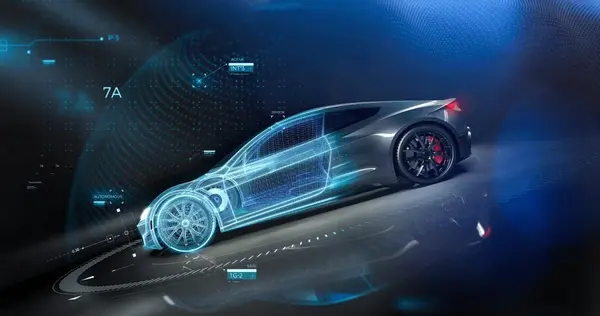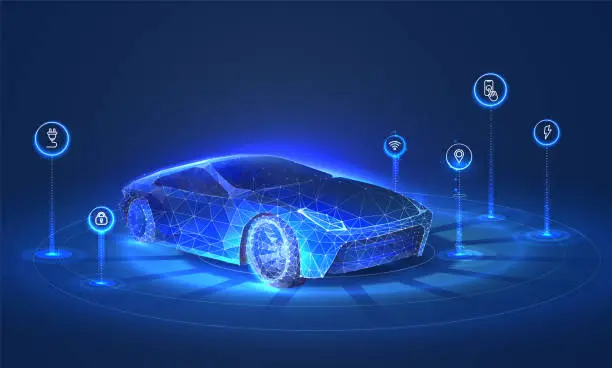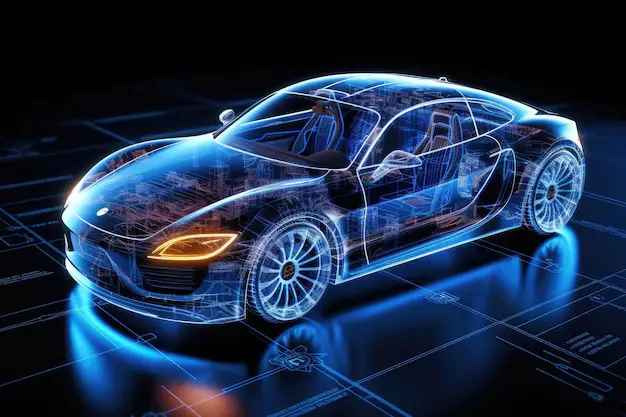Parking has always been a bit of a puzzle for drivers and city planners alike. One of the latest breakthroughs is the use of vehicle detection sensors. These small devices are making waves in the way we find parking spots and manage parking lots. In this article, we'll explore what a vehicle detection sensor is, as well as the advantages and types of these sensors.
Understanding Vehicle Detection Sensors
Vehicle detection sensors are devices that help identify when a vehicle is present in a specific area. They play a vital role in modern parking systems by:
- Enhancing parking efficiency: They help drivers find open spots faster and help managers with data on parking space usage.
- Improving traffic flow: By reducing the time spent searching for a spot, these sensors help reduce congestion.
- Increasing safety: They can reduce accidents in parking areas by offering real-time data.
- Efficient Parking Management: Real-time data collection helps operators monitor parking patterns and optimize space usage. This data can lead to better decision-making and planning for future expansions or changes.
- Economic Benefits: Reducing the time cars spend looking for parking decreases fuel consumption, which can lead to savings for both operators and drivers. Additionally, efficient parking systems can attract more customers to commercial areas.
For more technical insights on how these sensors contribute to parking systems, this resource provides in-depth research and findings.
In summary, vehicle detection sensors are key players in transforming urban parking systems, making them more efficient and driver-friendly.
Types of Sensors for Vehicle Detection

When it comes to detecting vehicles, different types of sensors play unique roles. Each type offers distinct advantages and applications within parking systems. Let's explore some common sensors used to enhance parking efficiency.
Ultrasonic Sensor for Vehicle Detection
Ultrasonic sensors are widely used in parking systems due to their reliability and simplicity. Here's what makes them stand out:
- Function: These sensors use sound waves to detect the presence of a vehicle. They can accurately measure the distance to an object by transmitting ultrasonic pulses and receiving the echoes reflected back.
- Application: Ultrasonic sensors are often found in parking garages and lots. They help indicate available parking spaces and assist drivers in avoiding collisions while parking.
- Advantages:
- Cost-effective compared to other sensor technologies.
- Easy to install and maintain.
- Effective in different lighting conditions, as they rely on sound rather than light.
Radar Sensor for Vehicle Detection

Radar technology is another effective means of vehicle detection, offering precise measurements and robust applications:
- Function: Radar sensors use radio waves to identify objects. They determine the speed, distance, and angle of vehicles, providing comprehensive data about the parking environment.
- Applications: These sensors are well-suited for environments where precise detection is critical. They are often used in automated parking systems and for monitoring traffic flow within parking facilities.
- Benefits:
- Accurate in adverse weather conditions, including rain and fog.
- Longer detection ranges than ultrasonic sensors.
- High durability and reliability in varied environments.
Cost Considerations: Vehicle Detection Sensors Price

When investing in vehicle detection technologies, understanding cost factors is essential. Here's a broad overview of how costs can vary and what to consider:
- Cost Factors:
- Sensor Type: Different sensor technologies come with varying price tags. For example, ultrasonic sensors are generally more affordable, while radar sensors may entail higher costs.
- Installation and Maintenance: Setting up sensors incurs initial costs, and periodic maintenance can affect long-term expenses.
- System Complexity: More sophisticated systems with additional features, such as AI integration, typically cost more.
- Cost Variations Across Sensor Types:
- Ultrasonic sensors are usually cheaper but might require more frequent maintenance.
- Radar sensors, while pricier, offer longer life spans and better performance in challenging conditions.
- Evaluating Cost Against Benefits:
- Compare the investment in sensors against the potential increase in parking efficiency and safety.
- Consider how improved traffic flow and reduced collisions can lead to cost savings over time, justifying the upfront expense.
For more information on sonic vehicle detection sensors, visit SAE.
Car Distance Sensor: Role in Parking
Car distance sensors play a vital role in enhancing the accuracy and effectiveness of parking systems. Let's delve into their importance and contributions.
Role in Parking:
- Enhanced Accuracy: Car distance sensors help in precise vehicle positioning within parking spots. This accuracy is crucial for preventing overlaps and ensuring that vehicles are parked safely within designated areas.
- Damage Reduction: By accurately gauging the distance between vehicles and other obstacles, these sensors significantly reduce the chances of dents and scratches—a common issue in cramped parking spaces.
- Support for Automatic Parking: Many modern vehicles come equipped with automated parking systems that rely on car distance sensors. These systems can park vehicles with minimal human intervention, providing convenience and reducing parking-related stress.
- Real-time Feedback: Drivers receive instant feedback if a potential collision is detected, allowing them to take corrective actions swiftly.
By integrating car distance sensors into parking infrastructures, operators can achieve greater precision and efficiency, ultimately enhancing the overall parking experience for users.
Innovations in Vehicle Detection Sensors
The world of parking is constantly evolving, and vehicle detection sensors are at the forefront of this transformation. Emerging technologies are introducing exciting possibilities that make parking systems smarter and more efficient.
Smart Sensors: The Future of Parking
One of the significant innovations is the development of smart sensors. These advanced devices incorporate features like real-time data processing and communication capabilities. Smart sensors help:
- Monitor parking spaces with higher accuracy
- Provide instant updates on parking availability
- Reduce the need for manual checks
Integration with Internet of Things (IoT) technology allows these sensors to communicate directly with parking management systems, improving efficiency and user experience.
Artificial Intelligence in Sensor Technology
AI is another frontier revolutionizing vehicle detection sensors. By applying machine learning algorithms, these sensors can predict parking patterns and optimize space allocation, leading to:
- Reduced congestion
- Better traffic flow
- Enhanced parking management
The application of AI allows sensors to adapt and improve over time, leading to smarter solutions.
Summary and Exploring Opportunities
In conclusion, vehicle detection sensors are reshaping the parking landscape by making it smarter and more efficient. Here’s a quick recap of the key benefits:
- Improved Parking Efficiency: By accurately detecting available spaces, these sensors reduce the time spent looking for parking.
- Enhanced Safety: With precise detection, the risk of accidents and parking-related damages decreases.
- Cost-Effective Solutions: While initial investments vary, the long-term benefits in terms of time and resource savings are significant.
For businesses and municipalities looking to enhance their parking systems, exploring the integration of modern sensor solutions provides an opportunity to improve operational efficiency and user satisfaction. As advancements continue, staying updated with the latest in sensor technology can help leverage new capabilities and maintain a competitive edge in the industry.
How Vehicle Detection Sensors Help Revolutionize Parking